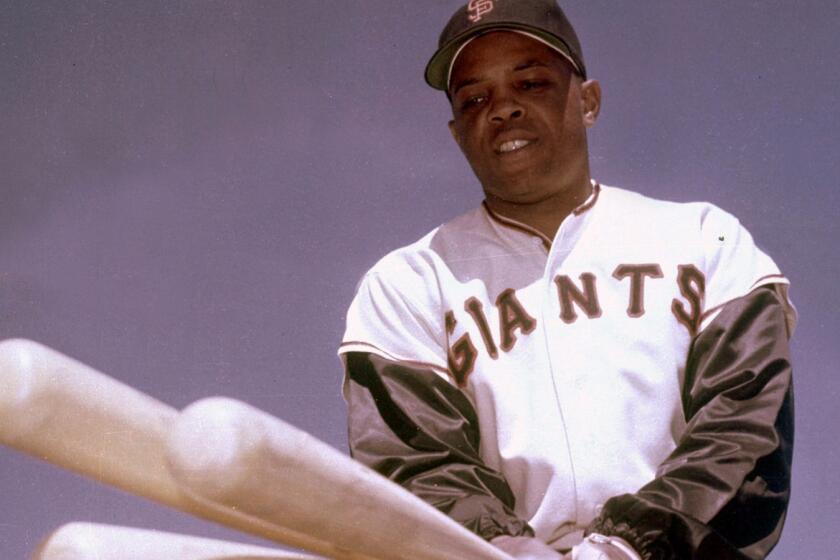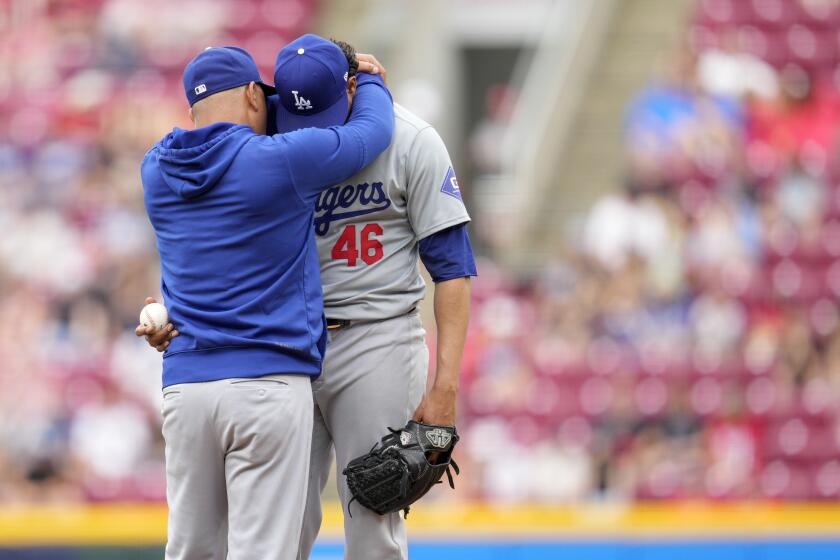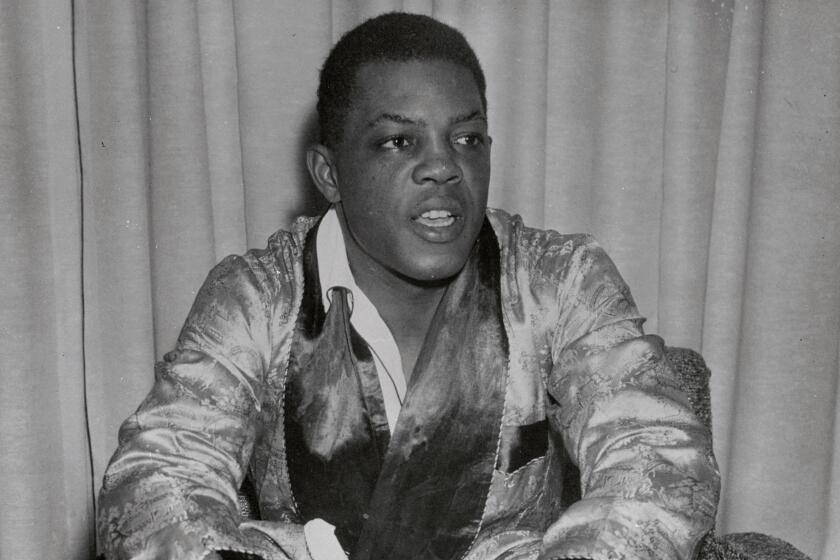Orlando Cepeda, San Francisco Giants great and Hall of Fame first baseman, dies at 86
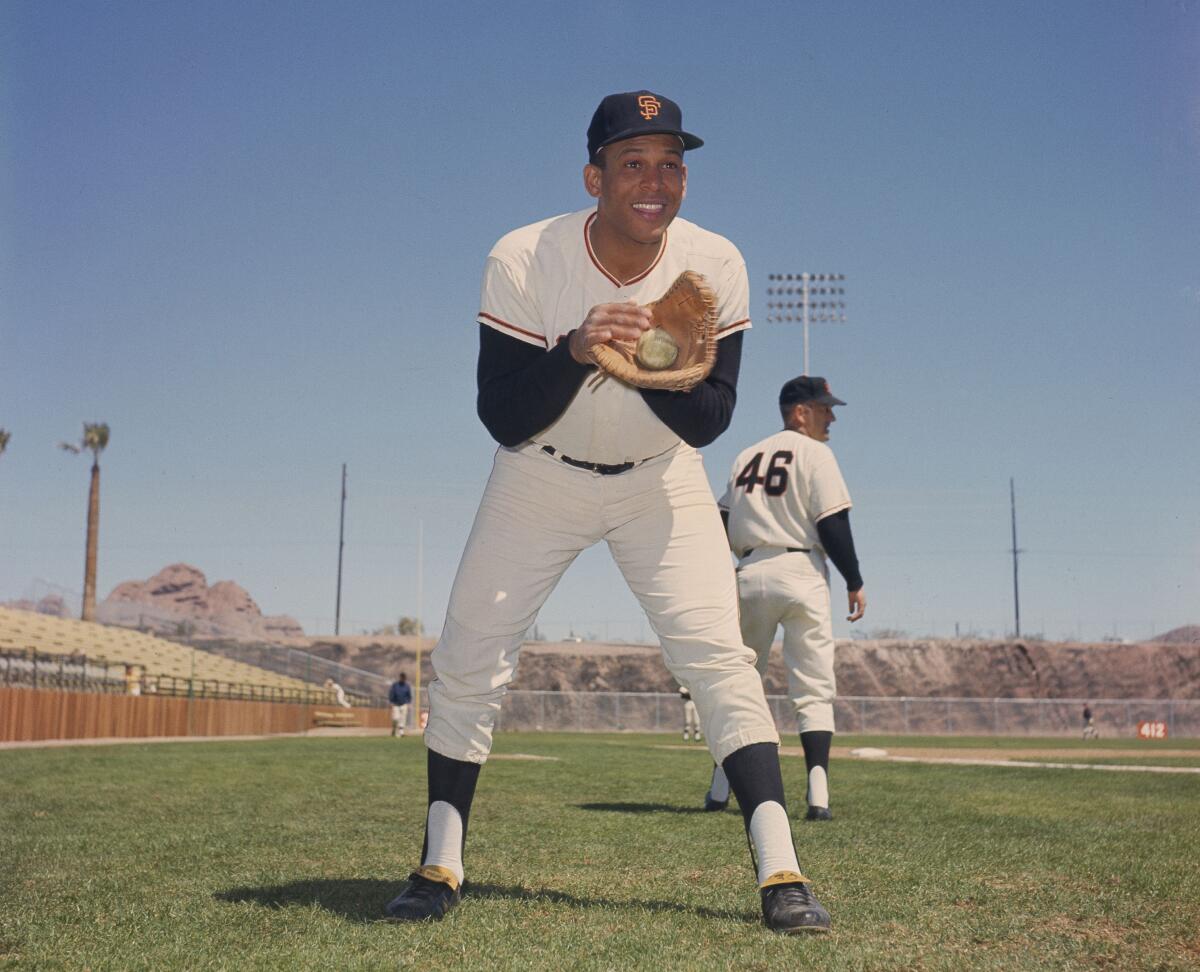
SAN FRANCISCO â Orlando Cepeda, the slugging first baseman nicknamed âBaby Bullâ who became a Hall of Famer among the early Puerto Ricans to star in the major leagues, has died. He was 86.
The San Francisco Giants and his family announced the death Friday night and a moment of silence was held as his photo showed on the scoreboard at Oracle Park midway through a game against the Dodgers.
âOur beloved Orlando passed away peacefully at home this evening, listening to his favorite music and surrounded by his loved ones,â his wife, Nydia, said in a statement released through the team. âWe take comfort that he is at peace.â
Cepeda was a regular at Giants home games through the 2017 season until he dealt with some health challenges. He was hospitalized in the Bay Area in February 2018 following a cardiac event.
One of the first Puerto Rican stars in the majors but limited by knee issues, he became Bostonâs first designated hitter and credits his time as a DH for getting him enshrined into the Hall of Fame in 1999 as selected by the Veteranâs Committee.
Willie Mays, widely regarded as the finest player in Major League Baseball history, died Tuesday afternoon, the San Francisco Giants announced.
âOrlando Cepedaâs unabashed love for the game of baseball sparkled during his extraordinary playing career, and later as one of the gameâs enduring ambassadors,â Hall of Fame Chairman Jane Forbes Clark said. âWe will miss his wonderful smile at Hall of Fame Weekend in Cooperstown, where his spirit will shine forever, and we extend our deepest sympathies to the Cepeda family.â
When the Red Sox called Cepeda in December 1972 to inquire whether heâd like to be their first designated hitter, the unemployed player accepted on the spot.
âBoston called and asked me if I was interested in being the DH, and I said yes,â Cepeda recalled in a 2013 interview with the Associated Press in the 40th year of the DH. âThe DH got me to the Hall of Fame. The rule got me to the Hall of Fame.â
He didnât know what it would mean for his career, acknowledging, âI didnât know anything about the DH.â The experiment worked out beautifully for Cepeda, who played in 142 games that season â the second-to-last in a decorated 17-year major league career. The Aâs had released Cepeda only months after acquiring him from Atlanta on June 29, 1972.
Cepeda was celebrated at Fenway Park on May 8, 2013, for a ceremony celebrating his role as designated hitter. The Red Sox had invited him for their first home series of the season but his former Giants franchise was honoring the reigning World Series champions at the same time.
âIt means a lot,â Cepeda said then. âAmazing. When you think everythingâs finished, itâs only the beginning.â
He said then-Aâs owner Charlie Finley sent him a telegram to call him within a 24-hour period or heâd be released. Cepeda didnât meet the deadline and was let go in December 1972. He played in only three games for Oakland after the Aâs acquired him for pitcher Denny McLain. Cepeda was placed on the disabled list with a left knee injury. He had 10 knee operations in all, sidelining him four different years.
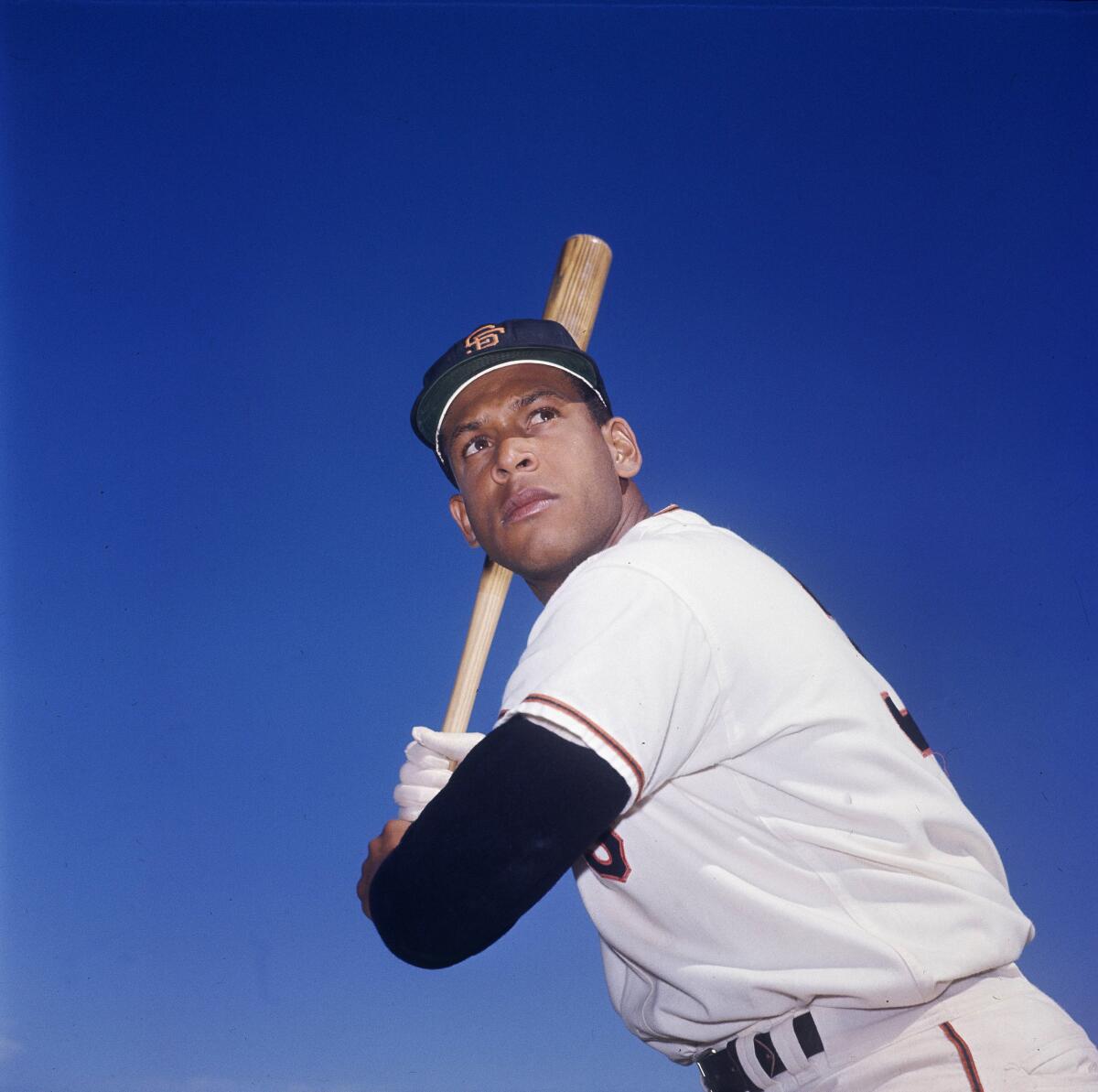
Cepeda had been a first baseman and outfielder before joining the first class of baseballâs designated hitters under the new American League rule.
âThey were talking about only doing it for three years,â he said. âAnd people still donât like the idea of the DH. They said it wouldnât last.â
The addition of the DH opened new opportunities for players such as Cepeda and others from his era who could still produce at the plate late in their careers but no longer played the field with the spot-on defense of their primes.
Cepeda was thrilled to have another chance.
He hit .289 with 20 home runs and 86 RBIs in 1973, starting off strongly with a .333 average and five homers in April. He drove in 23 runs in August on the way to DH of the Year honors. On Aug. 8 at Kansas City, Cepeda hit four doubles.
âThat was one of the best years,â Cepeda recalled, âbecause I was playing on one leg and I hit .289. And I hit four doubles in one game. Both my knees were hurting, and I was designated hitter of the year.â
Cepeda topped Baltimoreâs Tommy Davis (.306, seven homers, 89 RBIs) and Minnesotaâs Tony Oliva (.291, 16 HRs, 92 RBIs) for top DH honors.
âIt wasnât easy for me to win the award,â Cepeda said. âThey had some great years.â
Cepeda also knew little English when he arrived in the minor leagues in the mid-1950s, putting him among the first wave of Spanish-speaking players thrown into a different culture to play professional baseball, build new lives and send money back home.
It was an opportunity to succeed in a sport he loved, as long as daunting challenges off the field could be overcome.
The Dodgers have become adept at unlocking the potential of relievers cast off by other teams, with Yohan RamĂrez, Anthony Banda and Michael Petersen being the latest examples.
Early on, Cepeda was told by a manager to go home to Puerto Rico and learn English before coming back to his career in the U.S.
âComing here my first year, everything was a novelty to me, a surprise,â Cepeda recalled in a 2014 interview with the AP. âWhen I came to Virginia, I was there for one month and my father died. My dad said, âI want to see my son play pro ball,â and he died the day before I played my first game in Virginia.â
âFrom there I went to Puerto Rico and when I came back here, I had to come back because we didnât have no money and my mother said, âYouâve got to go back and send me money, we donât have money to eat,ââ he said.
Cepeda had continued to be encouraged watching so many young players from Latin America arriving in the United States with better English skills, thanks in large part to all 30 major league organizations putting more emphasis into such training through academies in the Dominican and Venezuela.
There also are English classes offered to young players during spring training and into extended spring, plus through the various levels of the minor leagues.
He had his troubles, too.
Cepeda was arrested in May 2007 after being pulled him over for speeding when officers discovered drugs in the car.
The California Highway Patrol officer arrested Cepeda after finding a âusableâ amount of a white-powder substance that likely was methamphetamine or cocaine, while marijuana and a syringe were also discovered.
After his playing career ended, Cepeda was convicted in 1976 in San Juan, Puerto Rico, of smuggling marijuana and sentenced to five years in prison.
Baseball great Willie Mays never wanted to be an activist, but the racism he encountered after moving to San Francisco helped motivate the city and state governments to outlaw housing discrimination.
That conviction was probably one reason he was not elected to the Hall of Fame by the Baseball Writersâ Association of America. Cepeda eventually was elected by the Veterans Committee in 1999.
Cepeda played first base during his 17 seasons in the majors, beginning with the Giants. He also spent time with St. Louis, Atlanta, Oakland, Boston and Kansas City. In the spring of 1969, Cepeda was traded by the Cardinals to the Braves for Joe Torre.
A seven-time All-Star who played in three World Series, Cepeda was the 1958 NL Rookie of the Year with San Francisco and NL MVP in 1967 with St. Louis, a city sad to see him go in that trade that brought Torre to town. In 1961, Cepeda led the NL with 46 homers and 142 RBIs. Cepeda was a .297 career hitter with 379 home runs.
It wasnât until after that 1973 season as DH that Cepeda could look back and appreciate all he had accomplished that year â along with the big part he played in history and change in the sport.
âI just did it,â he said of learning the DH. âEvery day, I say to myself, how lucky I am to be born with the skills to play ball.â
Janie McCauley is a writer with the Associated Press.
More to Read
Go beyond the scoreboard
Get the latest on L.A.'s teams in the daily Sports Report newsletter.
You may occasionally receive promotional content from the Los Angeles Times.
